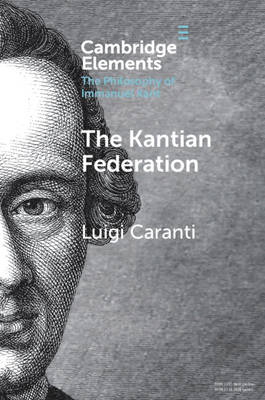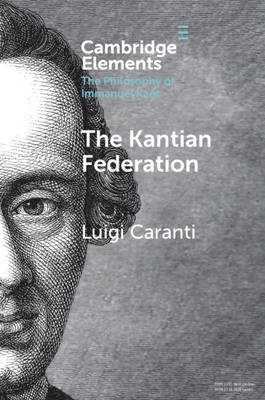
- Afhalen na 1 uur in een winkel met voorraad
- Gratis thuislevering in België vanaf € 30
- Ruim aanbod met 7 miljoen producten
- Afhalen na 1 uur in een winkel met voorraad
- Gratis thuislevering in België vanaf € 30
- Ruim aanbod met 7 miljoen producten
Zoeken
Omschrijving
This Element introduces the reader to Kant's theory of peace and to its place in the broader context of the critical philosophy. It also delves into one aspect of the model that has generated much debate among interpreters, given Kant's changing thoughts on the matter. This aspect relates to the nature and powers of the international federation. Defending the idea that national sovereignty is indissolubly linked to states' full autonomy regarding the use of military power, this Element offers an interpretation and defense of the Kantian federation that, in many regards, departs from the mainstream reading. Special emphasis is placed on the problematic coexistence of two conflicting theoretical desiderata: on the one hand, the necessity of establishing an international institution with coercive powers for securing peace; on the other hand, the necessity of avoiding the risk of an excessive erosion of states' sovereignty.
Specificaties
Betrokkenen
- Auteur(s):
- Uitgeverij:
Inhoud
- Aantal bladzijden:
- 75
- Taal:
- Engels
- Reeks:
Eigenschappen
- Productcode (EAN):
- 9781009016971
- Verschijningsdatum:
- 23/06/2022
- Uitvoering:
- Paperback
- Formaat:
- Trade paperback (VS)
- Afmetingen:
- 152 mm x 229 mm
- Gewicht:
- 113 g

Alleen bij Standaard Boekhandel
+ 63 punten op je klantenkaart van Standaard Boekhandel
Beoordelingen
We publiceren alleen reviews die voldoen aan de voorwaarden voor reviews. Bekijk onze voorwaarden voor reviews.











